As core equipment in fields such as mining and engineering drilling, the stable operation of DTH hammer drills relies directly on scientific maintenance management. DTH hammer drill maintenance is not only the foundation of daily equipment management but also the key to reducing failure risks, extending service life, and improving operational efficiency. Neglecting DTH hammer drill maintenance may lead to frequent equipment shutdowns, accelerated wear of components, and even safety accidents. The following details a practical guide to DTH hammer drill maintenance from aspects such as core maintenance points, cycle management, and common misunderstandings.
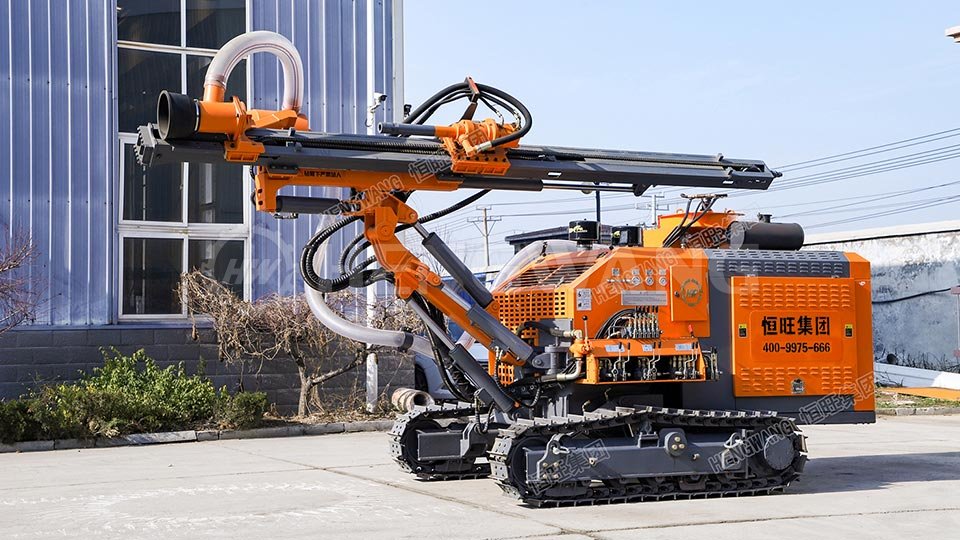
I. Core of DTH Hammer Drill Maintenance: Daily Inspection and Maintenance of Key
Components The efficient operation of a DTH hammer drill depends on the collaboration of various components. DTH hammer drill maintenance must focus on daily inspections of core components: - Impactor Maintenance: As the "powerful heart" of the drill, the impactor requires daily checks of lubricating oil quantity and cleanliness to ensure sufficient lubrication between the piston and cylinder, avoiding wear caused by dry friction. At the same time, clean up rock debris and impurities in the impactor to prevent blockages from affecting impact frequency—this is a key link in DTH hammer drill maintenance to reduce failures.
Drill Pipe Maintenance: Drill pipes bear high-frequency vibration and torque. DTH hammer drill maintenance requires regular inspections of drill pipe connection threads for integrity, cracks, or deformation. Worn parts should be replaced promptly to prevent breakage during operation. In addition, clean the mud on the drill pipe surface after each use and apply rust inhibitor to prevent corrosion.
Hydraulic System Maintenance: The quality of hydraulic oil directly affects the drill's power transmission. DTH hammer drill maintenance requires regular testing of hydraulic oil level and contamination, replacing filters according to the specified cycle, ensuring no leakage in the hydraulic system and stable pressure, and reducing shutdowns caused by hydraulic failures.
II. DTH Hammer Drill Maintenance Cycle Management: Hierarchical Maintenance
Improves Equipment Reliability DTH hammer drill maintenance needs to establish a hierarchical maintenance system of "daily-weekly-monthly" to ensure comprehensive coverage:
Daily Maintenance: Before operation, check fuel, lubricating oil, and hydraulic oil levels, and clean the air filter element; after operation, clean the equipment surface, inspect track or tire wear, and tighten loose bolts. This is the foundation of DTH hammer drill maintenance, enabling timely detection of potential issues.
Weekly Maintenance: Focus on inspecting the tightness of hydraulic pipeline joints, testing the sensitivity of the braking system, and lubricating rotating and lifting mechanisms to ensure flexible operation of all moving parts. Weekly DTH hammer drill maintenance reduces the aging rate of components.
Monthly Maintenance: Conduct a comprehensive inspection of engine performance, check the concentration of radiator coolant, calibrate the accuracy of pressure gauges and flow meters, and replace severely worn易损件 (such as drill bits and seals). In-depth monthly DTH hammer drill maintenance provides a "full physical examination" for the equipment.
III. Direct Correlation Between DTH Hammer Drill Maintenance and Operational Efficiency
High-quality DTH hammer drill maintenance can significantly improve operational efficiency. After standardized maintenance, the impactor’s impact energy is stable, and drill pipe transmission is efficient, reducing single-hole construction time by 10%-15%; conversely, neglecting DTH hammer drill maintenance may lead to problems such as reduced impact frequency and drilling deflection, increasing rework rates and directly affecting project progress. For example, a mine failed to replace the hydraulic oil filter in time, causing contamination and blockage of the hydraulic system, resulting in a 3-day shutdown for repairs, leading to project delays and additional costs—fully demonstrating the decisive role of DTH hammer drill maintenance in efficiency.
IV. Common Misunderstandings in DTH Hammer Drill Maintenance: Avoid These "Life-Shortening" Behaviors
In DTH hammer drill maintenance, common misunderstandings may exacerbate equipment wear:
(1) "Emphasizing Use Over Maintenance": Assuming "no repair is needed if the equipment isn’t broken" and ignoring daily inspections, allowing minor faults to evolve into major problems. DTH hammer drill maintenance must adhere to the principle of "prevention first" rather than passive repair.
(2) Mixing Maintenance Oils: Different types of lubricating oils and hydraulic oils have different properties; mixing them may cause component corrosion or lubrication failure. DTH hammer drill maintenance must strictly select compatible oils according to the equipment manual.
(3) Neglecting Environment-Adapted Maintenance: After operating in dusty or high-humidity environments, failing to air filter cleaning or rust prevention accelerates equipment aging. DTH hammer drill maintenance must adjust maintenance intensity based on operating environment characteristics.
V. Professional Tools and Personnel: Guarantees for DTH Hammer Drill
Maintenance DTH hammer drill maintenance requires professional tools and trained personnel. Equip with special tools such as torque wrenches and hydraulic oil detectors to ensure precise maintenance operations; regularly train maintenance personnel to familiarize them with equipment structure and maintenance standards, avoiding secondary damage caused by improper operation. Meanwhile, establish a DTH hammer drill maintenance file to record each maintenance content, replaced component models, and equipment operating status, providing data support for subsequent maintenance and forming a closed-loop management of "maintenance-recording-optimization". DTH hammer drill maintenance is the core of equipment management. From daily component inspections to periodic hierarchical maintenance, from avoiding maintenance misunderstandings to relying on professional guarantees, every step directly affects equipment lifespan and operational efficiency. Adhering to scientific DTH hammer drill maintenance can reduce downtime due to failures, lower component replacement costs, and keep the DTH hammer drill performing stably during high-intensity operations, providing continuous and reliable power support for engineering construction. Valuing DTH hammer drill maintenance is safeguarding project benefits and equipment safety.
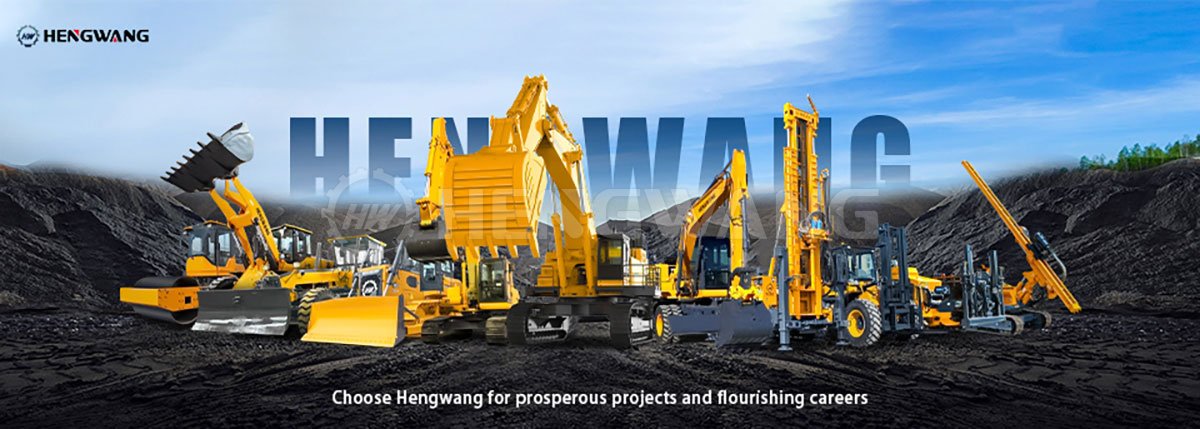
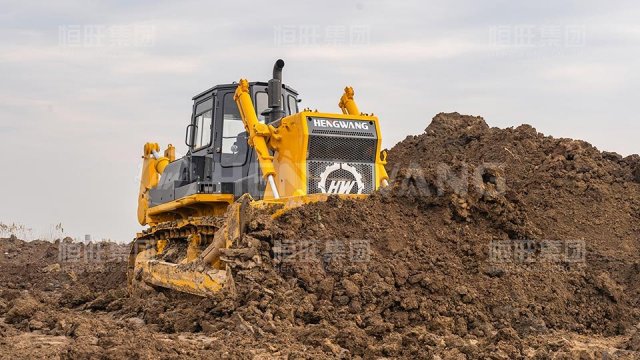 Road Leveling Bulldozer: The Core Guarantee for Efficient Road Construction
Road Leveling Bulldozer: The Core Guarantee for Efficient Road Construction
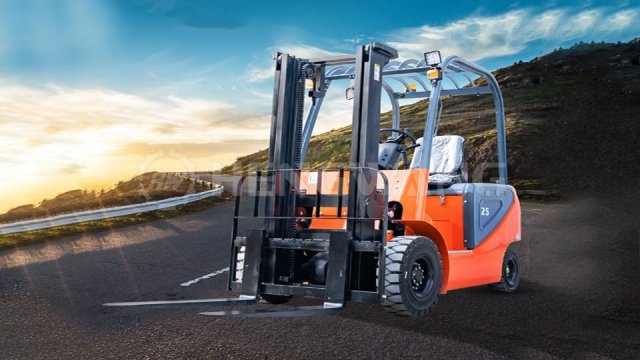 Off-Road Forklifts_ A Powerful Assistant for Complex Field Operations
Off-Road Forklifts_ A Powerful Assistant for Complex Field Operations
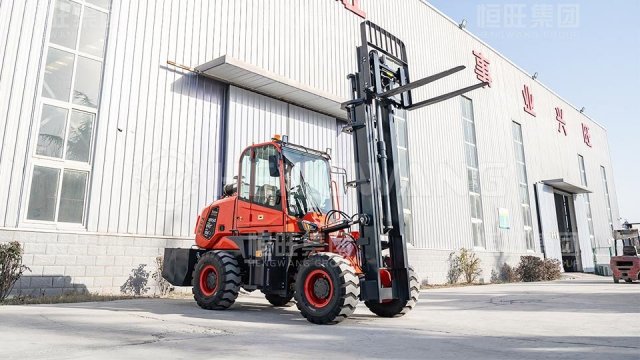 High-Load Off-Road Forklift: A Powerful Tool for Heavy-Duty Operations in Complex Environments
High-Load Off-Road Forklift: A Powerful Tool for Heavy-Duty Operations in Complex Environments